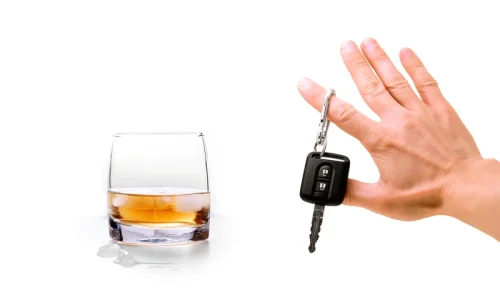Are psychedelics addictive? Side effects and risks

For years, the media has portrayed psychedelic substances as dangerous and their users as reckless hippies. In addition, the powerful effects of these psychedelic substances may have you wondering about their safety. Another danger that is more common these days with ecstasy is that it’s harder to find pure MDMA.
Mescaline
Hallucinations are sensory experiences that cause a person to see, hear, smell, taste, or feel things that are not really there. Someone who takes psychedelics may experience changes in their awareness of their thoughts and surroundings. The causes of psychedelic addiction can range from biological factors to psychological factors and environmental factors, like peer pressure, availability, and social acceptance. In similar experiments, monkeys have been known to repeatedly press levers that inject the drugs heroin, cocaine and even methylenedioxymethamphetamine (MDMA). It’s a phenomenon that researchers attribute to the “reinforcing effects” of these drugs. Some repeatedly pressed the lever to the point of intoxication; others swore off the lever for good after one dose.
Are Psychedelic Drugs Legal?

Other research has found that some people do experience symptoms of ketamine withdrawal. There is minimal research on the effects of psychedelics on pregnant people. Since there is already a 3 to 5% chance of birth alcoholism treatment defects in every pregnancy, taking substances that have not been explicitly cleared for pregnant people is risky. That being said, there is developing research indicating psilocybin could be beneficial for postpartum depression. Another long-term effect is a phenomenon called hallucinogen persisting perception disorder (HPPD). This involves flashbacks of a prior drug experience that can happen without warning and cause significant distress or impairment.

Psilocybin Mushrooms
- Psilocybin and other psychedelics have been investigated for their potential to help individuals overcome addiction—for alcohol use disorders particularly.
- He theorized that the combination of LSD-induced visual hallucinations could, when combined with religious experiences, bring on a cessation in an individual’s desire to consume alcohol.
- Among people aged 12 or older in 2021, 2.6% (or about 7.4 million people) reported using hallucinogens in the past 12 months.
- All current legal administration of psychedelic drugs is conducted under the direct supervision of specially certified therapists.
- Their services are completely confidential, and their staff is rigorously trained, compassionate, and knowledgeable regarding psychedelics.
- However, some hallucinogenic drugs may lead to tolerance and some people report experiencing withdrawal effects when they stop using such substances.
As those with a history of harmful drug use may find it more difficult to limit their dosage, it is safer for them to abstain. When PCP is abruptly stopped, the user may experience severe cravings and other withdrawal symptoms. When consumed in high doses, psychedelics will trigger euphoria, which many users enjoy. It commences with heightened sensations and culminates in a state of nirvana. The user may feel interconnected with the universe or in sync with their true self.
Psilocybin has been studied for its ability to ease anxiety and improve the quality of life in palliative care. It has also been studied to help individuals with life-threatening illnesses. The psychedelic experience may help individuals confront existential concerns. Some people want to understand what happens in the brain if someone are psychedelics addictive takes psychedelics. Psychedelics primarily interact with the serotonin system in the brain, particularly the serotonin 2A receptor (5-HT2A).

DMT and ayahuasca
Psychedelics linked to the treatment of substance abuse rehabilitation include ketamine, LSD, MDMA, and psilocybin. Ayahuasca (DMT) has also been implicated in substance abuse rehabilitation. Generally, classic psychedelics like psilocybin and LSD are not known to be physically toxic or harmful in moderate doses. However, certain psychedelic substances, especially highly potent synthetic phenethylamine hallucinogens drugs sold as psychedelics, may pose https://ecosoberhouse.com/ risks.

Are Psychedelics Addictive, Helpful, or Harmful?
- MDMA (3,4-methylenedioxymethamphetamine), also called Ecstasy or Molly, is a synthetic compound that has successfully undergone confirmatory Phase 3 clinical trials for the treatment of moderate to severe PTSD.
- Psilocybin’s benefits include euphoria, positive mood, and reduced mental health disorder symptoms, which may be driving forces to seek out the substance.
- However, some people misuse DXM to achieve the feelings of euphoria it creates when taken in doses of 250–1,500 mg — much higher than the therapeutic range.
- Following two doses — 10 milligrams (mg) and then 25 mg — of the drug, the symptoms diminished, and the improvements remained significant for 3 months.
- While the middle values remain relatively similar with no notable changes, the most significant numbers are in the extremes.
Further research will help to elucidate the addiction potential of different psychedelics. In therapeutic settings, the set and setting are carefully curated to maximize therapeutic outcomes. Trained therapists guide individuals through the experience, and the physical environment is designed for safety, comfort, and conduciveness to introspection. It is the practice of taking small, sub-hallucinogenic doses of psychedelics. The goal of microdosing is not to induce a full psychedelic experience but to experience subtle benefits. However, some early research suggests that psychedelics may have the potential to treat conditions like OCD and certain eating disorders.

